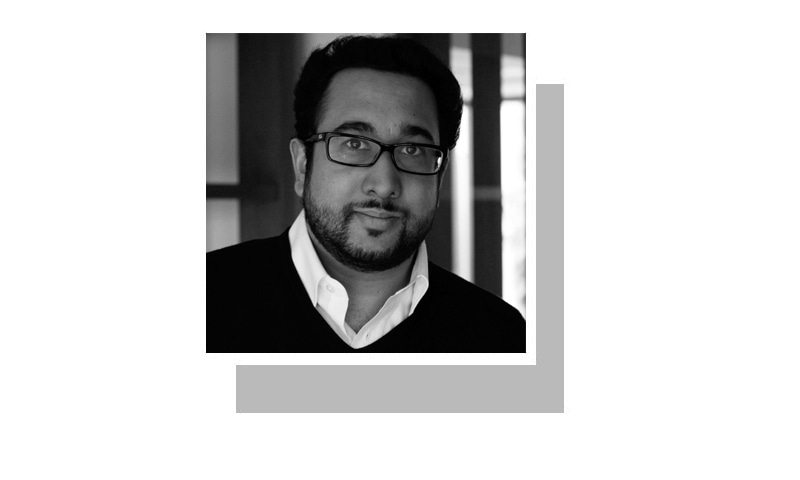
A YOUNG woman is shot, along with two others, on her way to school on a brisk autumn day in the Swat valley in 2012. Surely, there are no two sides to be on, in this?
On one, you have a 15-year-old activist, honoured by her government for her work promoting education rights. On the other, the Pakistani Taliban, an ultra-conservative armed movement determined to impose its interpretation of divine law on the country.
The bullet grazes her brain, lodging in her shoulder. She lives. Perhaps that is her crime.
Almost six years later, as Malala Yousafzai returns home to Pakistan for the first time since the attempt on her life, kept away by continuing threats to her safety, we find a number of strident, angry voices proclaiming “I am not Malala”. They accuse her of being a CIA agent, a Western stooge who has made her name by bringing shame to her country, trading in Pakistan’s name for personal fame and wealth. (That she has done none of these things is irrelevant.) They, in turn, are accused of being ‘stupid’, or worse, of being Taliban sympathisers who support the killing of young women.
Why do they hate Malala so much?
Hatred, however, is rarely ‘stupid’. It is informed by politics, ideology, and personal interests. By extension, the object of hatred is rarely the point of the hate: it is merely a conduit to express one’s politics. That they hate Malala is at once true, and irrelevant. The more pertinent question is: why do they hate her so much?
Misogyny is the simplest answer. (It is also, perhaps, the truest one.) Malala Yousafzai represents everything that the patriarchy cannot allow to exist: a woman who refuses to be silenced. A person who consistently fights for her gender’s rights, and who, after an attempt was made to kill her, continued to raise her voice. Consider the others Pakistani society has vilified in the way it does Yousafzai. Mukhtaran Mai, the survivor of a community-ordered gang rape, was another woman who refused to be passive, in the face of being subjected to truly horrific violence. In return, society tore her to shreds, placing the responsibility of the violence done to her on her own shoulders, justifying it and demanding her silence.
They lived, and that was their crime.
(For victims considered more acceptable, as long as they remain silent, or dead, see: Aitzaz Hassan, the APS massacre victims, and the Pakhtun population.) Mai and Yousafzai, however, have something else in common: both have been celebrated in the West for their respective battles for women’s rights. It is for this that then president Pervez Musharraf went as far as to suggest that Mai, and other women, voluntarily had themselves raped in order to gain foreign citizenship.
That, perhaps, is the crux. What is the greatest crime Yousafzai is accused of? Of being a Western ‘agent’, of being a myth created to malign Pakistan and to denigrate its values. She is celebrated at the United Nations, wins a Nobel Peace Prize, and rubs shoulders with world leaders. Any room she walks into, anywhere in the world, she is instantly the centre of attention, a universal symbol of all that is good in the world. That she is as loved as she is explains, perhaps, that she is as hated, too.
To those who consider the West to be a malicious player in the region, it immediately rankles. The criticism of Yousafzai seems aligned with a rabid, xenophobic nationalism that abhors dissent. It jumps quickly from ‘she brings shame to Pakistan’ to ‘she hates Pakistan’s nuclear weapon’ to ‘she criticises Pakistan’s military’.
(The West, of course, has played a part in creating this suspicion around women’s rights activists by using the notion of ‘liberating Muslim women’ as justification for armed interventions. Our state, too, has encouraged the idea that Pakistan’s problems are imposed from without, not within.)
The hatred, then, has little to do with her. It is about the haters’ conception of the world as one in which Pakistan is constantly battling the conspiracies of a vast international community that is bent on destroying it in particular, and Islam in general. In that battle, Yousafzai, universally feted by the West, is immediately the enemy. The level of vitriol reserved for her is directly proportional to how important, and extraordinary, she really is, to both the world and Pakistan.
Finally, there is ‘shame’. Yousafzai is accused of criticising Pakistan, when her rhetoric is marked by its absence of bitterness towards the country. Often, the most poignant moments in interviews with her are when she speaks of how she misses home. Perhaps, then, her very existence is the ‘shame’ those who hate her feel: that such a horrific, violent act could ever occur in our society, perpetrated by Pakistanis. That she lives, and continues to fight, is a reminder, every time they see her, that such a thing is possible.
She lived. Perhaps that was her crime.
The writer is a freelance journalist based in Islamabad.
Published in Dawn, April 4th, 2018










































